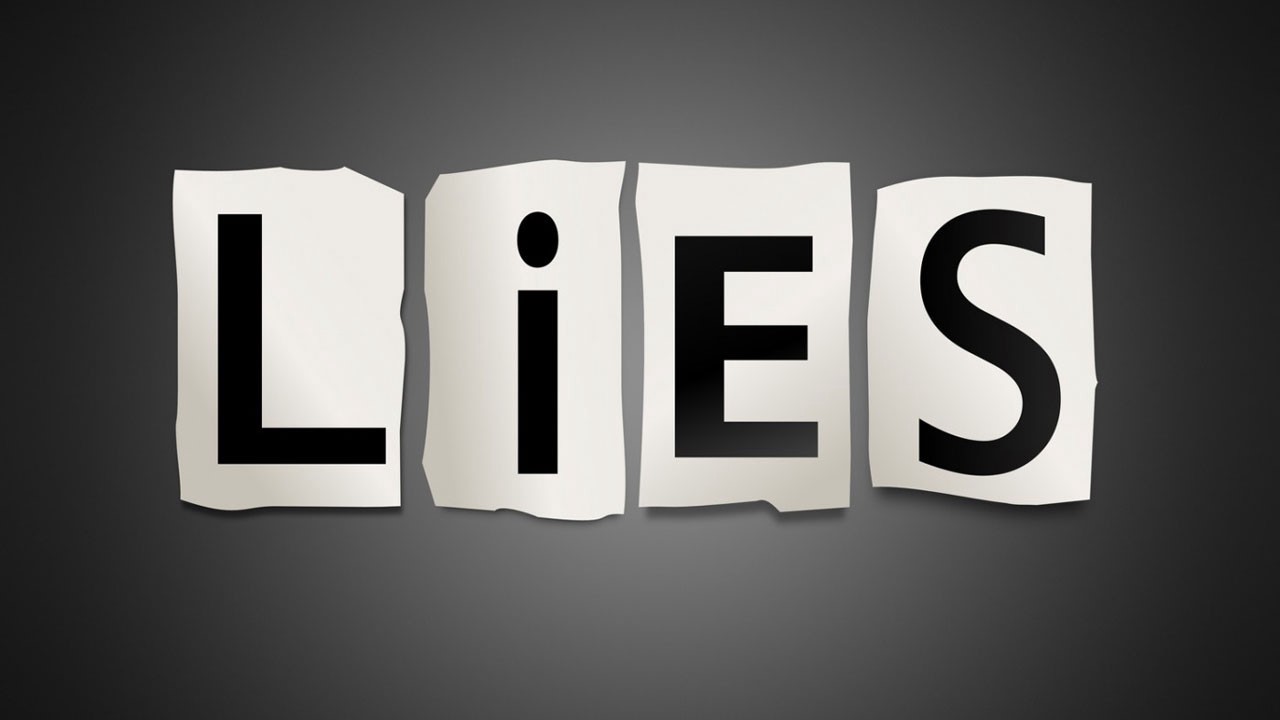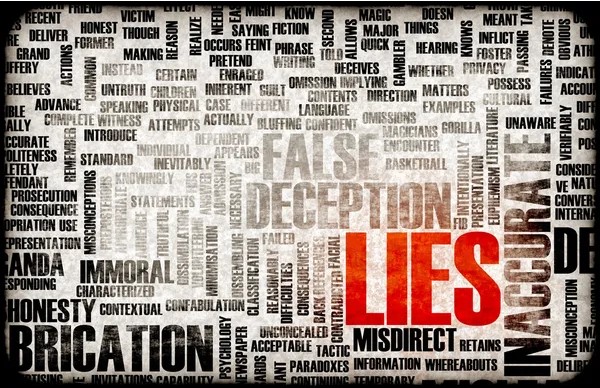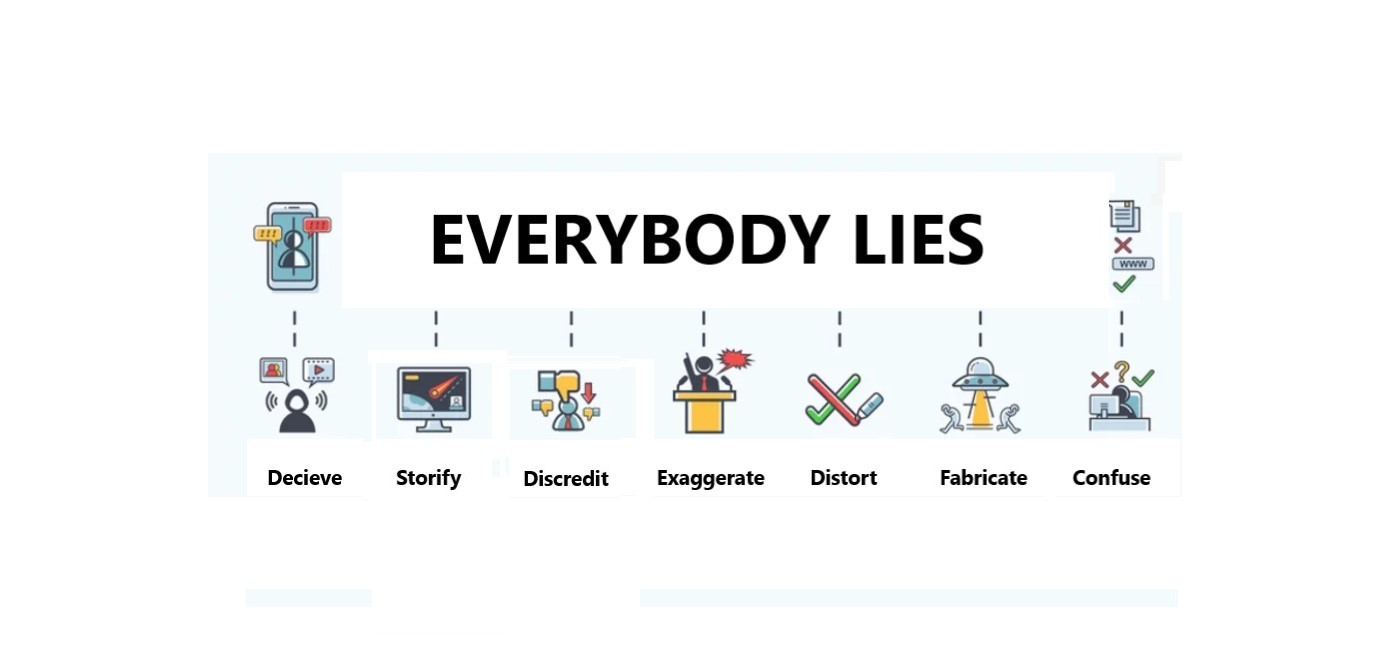Lessons in How to Lie
“There is no easier way to lie than with a social media lead. There are no greater bastions of deception and deceit, no places where white collar lies and false advertising are more common than those evident in the unchallenged words, pages, and posts on the Internet and in the unbridled, hyperbolic plugging in radio spots, television commercials, and breaking news.”
― Anonymous
Social Media Lead
Enticing and Deceiving with as Few Words as Possible
He didn’t speak for a year.
No Fees, No Commissions, No Repairs, No Hassle.
Testimonial
Bearing Witness to Promote Character or Quality
I am 65 years old and performing like a 20 year old again.
White Collar Lies and False Advertising
Telling Untruth to Create Positive or Avoid Negative Image
Sharing Misleading or Deceiving Information to Promote Sale of Property, Goods, Or Services
TikTok
In response to continuing concerns about its data use policies and practices, TikToc is said to have created a new department to provide a “greater level of focus and governance” on data security[1]Ed: Why do we accept and allow this level of deception to cover wrongdoing? Me: I don’t know. and recently a spokesperson attempted deferred accusations and liability: “We do not collect key stroke or other information through this code (emphasis added).[2]I did not have sexual relations with that woman.
Ford
When 2000 salaried employees and 1000 contractors (less than 1% of workforce) were informed that they are losing their jobs, Ford’s CEO Jim Farley and executive chairman Bill Ford spun the news with predictable malarky:
“Building this future requires changing and reshaping virtually all aspects of the way we have operated for more than a century.”
“It requires focus, clarity and speed. And, as we have discussed in recent months, it means redeploying resources and addressing our cost structure[3]with nothing from our outrageous take home and future earnings, which is uncompetitive versus traditional and new competitors.”
“We absolutely have too many people in certain places, no doubt about it,” Farley said at the time. “And we have skills that don’t work anymore. We have jobs that need to change.”[4]Ed: The veil and lack of leadership here is reprehensible. Me: I know.
Ex-exec alleged reckless and negligent cybersecurity policies that breaking news claimed threaten users, shareholders, national security, and democracy. Senior executive intelligentsia at Twitter opined he was passing a false narrative riddled with inconsistencies and inaccuracies and lacking important context. Impotent government agency on the case.
Lie, deny, carry on.
Prevagen
Prevagen is an over-the-counter supplement. Words on its website, in its commercials, and on its box claim that it “improves memory” and that it “supports: healthy brain function, sharper mind, clearer thinking.” Recently, Dr. Robert H. Shmerling, MD, Senior Faculty Editor, Harvard Health Publishing blogged that the U.S. Federal Trade Commission wasn’t convinced of the supplement’s benefits and charged its maker with false advertising in 2012. As is often the case, the case has not yet been decided; and the damage has been and continues to be done. Prevagen was introduced in 2007. Since then, over 10 million bottles of have been sold and it is available online and in stores nationwide.[5]Ed: We have laws to prevent false claims in advertising. Me: I know.
Vraylar
Vraylar claims to help control the mood swings of bipolar I disorder in adults, providing full-spectrum relief for all bipolar I symptoms: bipolar I depression and acute manic or mixed episodes. “Real people” compensated for their time are featured in videos sharing “real stories” about their experiences living with bipolar I disorder. Not all of those sharing stories were currently taking Vraylar and the stories were “brought to you by AbbVie” (i.e., the company responsible for commercialization in the U.S. and other countries).
Lumosity
The makers of the popular brain-training app deceived users with false claims about being able to help prevent Alzheimer’s disease, as well as to help students potentially perform better at school (e.g., people who played the games for more than 10 minutes, three times a week would release their “full potential in every aspect of life.” Not surprisingly, there was no science to back up the ads.
Activia Yogurt
Activia brand yogurt was marketed as being “clinically” and “scientifically” proven to boost the immune system and help regulate digestion; and, it was sold at 30% higher prices than other similar products. After a lawsuit was settled to “avoid the cost and distraction of litigation,” the producers were ordered to remove “clinically” and “scientifically proven” from the label. Phrases similar to “clinical studies show” and other wordsmithing were considered acceptable. Similar shucking and jiving allowances were part of the futile efforts to right the wrongs of Purdue Pharma in the opioid crisis.
Fortunes made, damage done, no lessons learned, and no recourse.
Notes
| ↑1 | Ed: Why do we accept and allow this level of deception to cover wrongdoing? Me: I don’t know. |
|---|---|
| ↑2 | I did not have sexual relations with that woman. |
| ↑3 | with nothing from our outrageous take home and future earnings |
| ↑4 | Ed: The veil and lack of leadership here is reprehensible. Me: I know. |
| ↑5 | Ed: We have laws to prevent false claims in advertising. Me: I know. |



